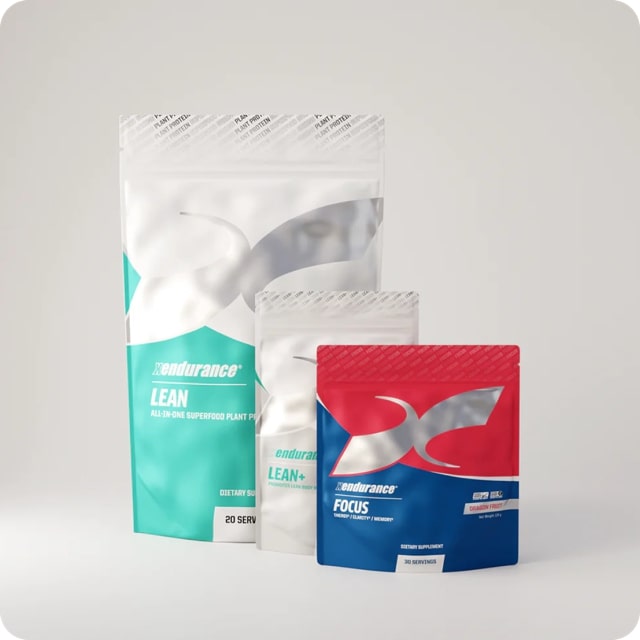How Important is Vitamin D?
In the pantheon of vitamins essential for health and well-being, Vitamin D holds a distinguished position, often hailed as the "sunshine vitamin." Its significance stems from its multifaceted role in the human body, influencing everything from bone health to immune system functionality. However, despite its importance, the discourse surrounding Vitamin D—how to maintain adequate levels, the varying recommendations from medical professionals, and the most effective sources—remains complex and sometimes contradictory. This article aims to shed light on these aspects, providing a comprehensive overview of Vitamin D's critical role in health, including its impact on vitamin d deficiency.
What is Vitamin D?
Vitamin D is a fat-soluble vitamin that functions as a hormone in the body, regulating the absorption of calcium and phosphorus, and facilitating normal immune system function. It is unique among vitamins because it can be synthesized by the human body when ultraviolet rays from sunlight strike the skin and trigger Vitamin D synthesis.
Vitamin D exists in two main forms: D2 (ergocalciferol), which is found in some plants, and D3 (cholecalciferol), which is made by the skin when exposed to sunlight. Of these, D3 is considered more effective in raising Vitamin D levels in the blood, highlighting the vitamin d3 benefits.
The Importance of Vitamin D
The benefits of maintaining adequate Vitamin D levels are profound and wide-ranging:
- Bone Health: Vitamin D is crucial for calcium absorption in the gut, which is essential for the formation and maintenance of strong bones. Insufficient Vitamin D levels can lead to bone diseases such as rickets in children and osteoporosis in adults.
- Immune System Support: It plays a significant role in immune system health, helping to fight off infections and diseases. Research suggests that adequate Vitamin D levels may reduce the risk of respiratory infections and may play a protective role against autoimmune diseases.
- Mood Regulation and Mental Health: There is evidence to suggest that Vitamin D may play a role in regulating mood and warding off depression. Some studies indicate that supplementing with Vitamin D could improve depressive symptoms in those with low levels.
- Reducing Risk of Chronic Diseases: Adequate levels of Vitamin D have been associated with a reduced risk of multiple sclerosis, heart disease, and even a lower likelihood of developing the flu.
Testing for Vitamin D Levels
Understanding your Vitamin D levels is the first step toward ensuring they are adequate. Testing typically involves a simple blood test called a 25(OH)D test, which measures the level of Vitamin D in your body. The results can help determine whether your Vitamin D levels are within an adequate range, deficient, or excessively high.
Why Discrepancies in Recommendations Exist
The recommended daily allowance (RDA) for Vitamin D varies globally and even among different health organizations. These discrepancies arise due to different methodologies in determining what constitutes adequacy, variations in sun exposure among populations, dietary habits, and differing interpretations of research data. For instance, the RDA for adults under the age of 70 in the United States is 600 IU (15 mcg), whereas some experts argue for much higher intakes to ensure optimal health benefits.
Do Athletes and Active People Require More Vitamin D?
Athletes and individuals who lead an active lifestyle may have higher requirements for Vitamin D, though this need extends beyond simply supporting bone health. The additional demand arises from Vitamin D's role in muscle function, recovery, inflammation reduction, and overall physical performance. Here's a closer look at why athletes and active people might need more Vitamin D:
Muscle Function
Vitamin D is essential for muscle contraction, strength, and growth. It helps in the synthesis of proteins, which is crucial for muscle repair and growth. Studies suggest that Vitamin D can enhance muscle recovery post-exercise and may reduce the risk of muscle injuries in athletes. For individuals engaging in regular, intensive exercise, adequate Vitamin D levels are essential to support these processes and optimize performance. Low vitamin D symptoms can include muscle weakness, which underscores the importance of maintaining sufficient levels.
Immune Health
Regular and intense training sessions can put a strain on the athlete's immune system, potentially increasing susceptibility to infections and illnesses. Vitamin D plays a significant role in modulating the immune system and has been shown to enhance immune response. By maintaining optimal levels of Vitamin D, athletes may help protect themselves against infections, especially during heavy training periods.
Inflammation and Pain Reduction
Vitamin D has anti-inflammatory properties, which can be beneficial for athletes in reducing pain and inflammation associated with exercise and injuries. This can aid in faster recovery, allowing for more consistent and effective training sessions.
Bone Health and Injury Prevention
While all individuals need Vitamin D for bone health, athletes and those who engage in high-impact or weight-bearing activities may benefit from its protective effect against stress fractures and other bone injuries. Vitamin D helps with calcium absorption, a critical factor in bone repair and strengthening.
Increased Requirements
The nature of outdoor versus indoor sports can also affect Vitamin D levels. Athletes who train indoors or live in regions with limited sunlight exposure may be at a greater risk for Vitamin D deficiency. Similarly, factors such as the use of sunscreen, which blocks UVB radiation and thereby the skin's ability to produce Vitamin D, and the wearing of protective clothing can further decrease Vitamin D synthesis.
Addressing Vitamin D Needs
Given these considerations, athletes and active individuals should pay particular attention to their Vitamin D status. Strategies to ensure adequate Vitamin D levels include:
- Monitoring Vitamin D Status: Regular blood tests can help monitor Vitamin D levels, allowing for adjustments in supplementation or diet as needed.
- Dietary Sources: Including foods high in vitamin D, such as fatty fish, egg yolks, and fortified products, can help meet part of the requirement.
- Supplementation: For many athletes, especially those in less sunny climates or with dietary restrictions, Vitamin D supplements may be necessary to achieve optimal levels.
- Sensible Sun Exposure: When possible, moderate sun exposure can help boost Vitamin D levels, but it's important to balance this with the risk of skin damage.
In conclusion, while the fundamental importance of Vitamin D applies universally, athletes and physically active individuals may require more of this nutrient to support their enhanced physical performance, recovery, and overall health. Addressing these needs through a combination of diet, supplements, and when possible, natural sunlight can help ensure they're meeting their body's demands.
Sources of Vitamin D: Supplements vs. Sunshine
The debate between obtaining Vitamin D through sunshine versus supplementation is ongoing. Each source has its pros and cons:
- Sunshine: The body naturally produces Vitamin D when exposed to sunlight. However, factors such as geographic location, skin pigmentation, time of day, and sunscreen use can significantly impact the amount of Vitamin D synthesized. Moreover, excessive sun exposure carries risks, including skin aging and cancer.
- Supplements: Vitamin D supplements offer a safe and effective way to increase levels, especially in individuals at risk of deficiency, such as those living in northern latitudes, with darker skin, or those who spend little time outdoors. The key is to choose the right type (D3 is preferred) and dosage, often determined in consultation with a healthcare provider, to avoid side effects of low vitamin D.

Balancing Vitamin D Intake
Given the essential roles Vitamin D plays, ensuring adequate intake is crucial. While sunlight is a natural and effective source, relying solely on sun exposure might not be practical or safe for everyone. Supplements provide a viable alternative, particularly for those at higher risk of deficiency.
Final Reflections: Embracing the Power
of Vitamin D
Vitamin D's significance to human health cannot be overstated—it supports bone health, bolsters the immune system, aids in mood regulation, and may reduce the risk of chronic diseases. However, navigating the complexities of maintaining adequate Vitamin D levels requires understanding the nuances of how it's synthesized, the reasons behind varying recommendations, and the best sources for your individual needs. By striking a balance between natural sunlight exposure and the prudent use of supplements, most individuals can achieve and maintain optimal Vitamin D levels, reaping the myriad benefits it has to offer. In the journey toward optimal health, ensuring adequate Vitamin D intake is a shining step forward.










Leave a comment
This site is protected by hCaptcha and the hCaptcha Privacy Policy and Terms of Service apply.